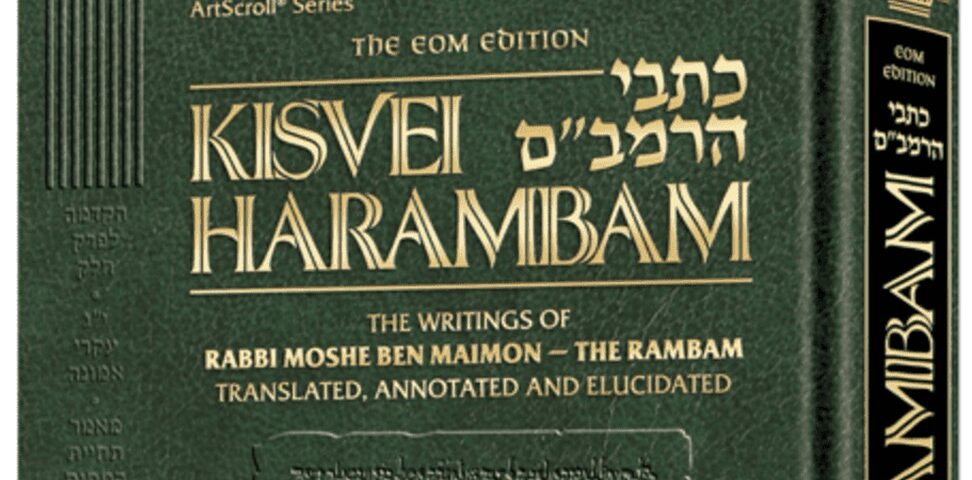LETTER: Giving ArtScroll Its Due

Professor Menachem Kellner’s review of the ArtScroll Kisvei HaRambam was highly nuanced and acknowledged the incongruity of a professor evaluating an ArtScroll work (TRADITION, Summer 2024). This did not prevent his critiques from coming through very clearly, and I would like to take issue with several of them.
 While Kellner does acknowledge that ArtScroll is one of the most important publishing houses in Jewish history, I think it is important to recognize the contribution to Jewish learning which is to the credit of ArtScroll, without the cynicism so common in certain circles. For example, while I understand that their most important project, the Schottenstein Talmud, may have moved people away from struggling with, and then potentially mastering the original text, it certainly opened up the study of Gemara for countless people who would not have had the opportunity otherwise. Of course, acknowledging ArtScroll’s contributions does not make the publisher immune to criticism, but they deserve their due.
While Kellner does acknowledge that ArtScroll is one of the most important publishing houses in Jewish history, I think it is important to recognize the contribution to Jewish learning which is to the credit of ArtScroll, without the cynicism so common in certain circles. For example, while I understand that their most important project, the Schottenstein Talmud, may have moved people away from struggling with, and then potentially mastering the original text, it certainly opened up the study of Gemara for countless people who would not have had the opportunity otherwise. Of course, acknowledging ArtScroll’s contributions does not make the publisher immune to criticism, but they deserve their due.
Further, Kellner points out that the new work on Rambam does not quote the likes of Rav Kook, Rabbi Sacks, and others. One should not expect them to. How often does Professor Kellner quote Rav Chaim Kanievsky in his writing (despite the perhaps ironic fact that he does quote him in this review)? People tend to quote the rabbinic figures of their own world. If Modern Orthodox people do not quote Haredi thinkers, why should we expect the opposite in return?
Finally, and perhaps most importantly, Kellner bemoans Artscoll’s ignoring academic scholarship on Rambam. Our world also ignores scholarship when it conflicts with our religious worldview. I think very highly of the Da’at Mikra series, but a Bible professor would say that it white-washes issues raised by archaeology, Biblical criticism, and the like. Modern Orthodoxy correctly draws a line of how much of the scholarly world it will accept. If the yeshivish world wants to draw its lines at a different point than we do, I do not think it’s fair to criticize the decisions they make for their own community, as we do something not too dissimilar ourselves.
Professor Kellner’s review raises many important issues, as his articles always do, but I think we need to remember that ArtScroll is written by people with a different worldview than mine, Professor Kellner’s, or a good deal of TRADITION readers,
Yaakov Blau
Teaneck, NJ
Menachem Kellner replies:
I thank Rabbi Yaakov Blau for his dispassionate critique of my review. I do not think that academic scholarship largely ignores traditional rabbinic scholarship because it conflicts with “our religious worldview.” Historically, most such scholarship has been written by people whose religious worldview is hardly Modern Orthodox. More to the point, academic scholarship largely ignores traditional rabbinic scholarship since academic scholarship seeks to understand Rambam in his own terms. Such studies attempt to come to grips with what Rambam actually wrote, not what generations of rabbinic scholars were sure he must have meant. For illustrations of this difference, one might look at James Diamond and Menachem Kellner, Reinventing Maimonides in Contemporary Jewish Thought (The Littman Library of Jewish Civilization, 2019).
Read Menachem Kellner’s review of Kisvei HaRambam: The Writings of Rabbi Moshe ben Maimon – The Rambam in TRADITION 56:3 (Summer 2024)—now open access. In related content, see Kellner’s recent review of the new translation of The Guide to the Perplexed (Stanford University Press) and his assessment of how it supersedes the existing English editions.
